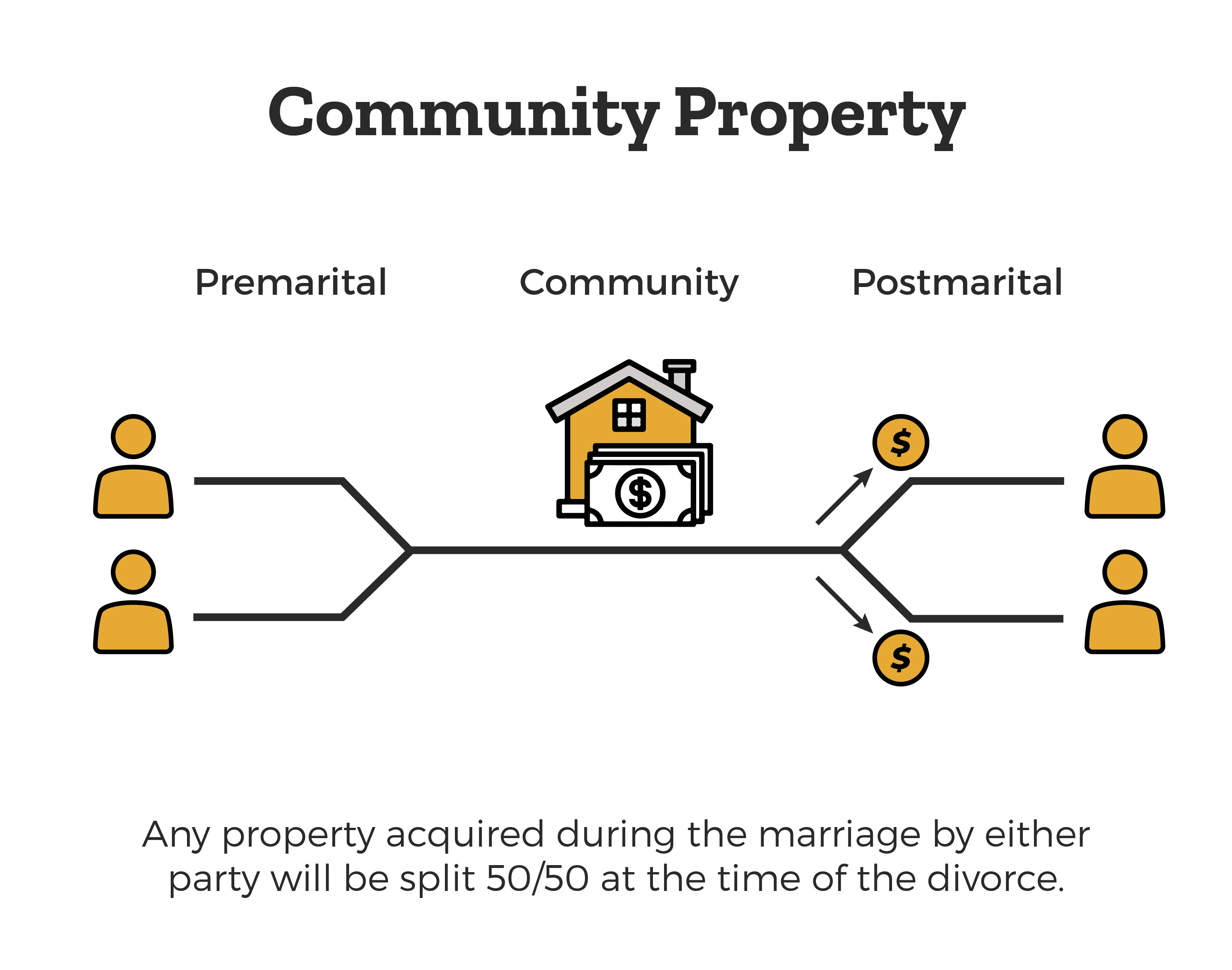Basics of a Prenuptial Agreement
No one enters a marriage thinking they are going to separate. Yet, over half of marriages end in divorce. A prenuptial agreement is a contract concerning property rights made before two people enter marriage. That contract becomes effective once the parties are married and will be considered as a legal settlement in the event of a divorce.
A “prenup” is a helpful and fully enforceable legal document for any engaged couple to make before entering marriage. The premarital agreement can act as a potential settlement agreement covering the division of assets, property, and debts. That way, if a couple ever does separate or divorce, there is already a solid agreement in place, which can help facilitate an efficient and cost-effective dissolution.
California law is intricate and complex, with its own rules regarding prenuptial agreements that must be considered before signing a contract.
What Can Be Included in a Prenup?
Prenuptial agreements are most commonly initiated to pacify a partner’s financial concerns and desires to address property rights in the marriage and in case of a divorce or separation.
It is important to know that a prenuptial agreement isn’t just protection for a future divorce, however. Prenups are useful for asset planning, particularly when one of the partners has had a previous marriage and/or children. Prenups can help instruct what will happen to the property, real estate, money, life insurance, and death benefits upon a spouse’s passing. Whereas state law might automatically establish a minimum inheritance to a spouse, a prenup can ensure the inheritance rights of children from a prior marriage.
California premarital agreements can also include information about the rights, roles, and obligations of each partner in the marriage, so long as the terms do not violate public policy. Most agreements will also contain a provision addressing spousal support. Some agreements will allocate a certain amount of spousal support for the lower-earning partner in the event of a divorce. Still, other agreements may eliminate alimony entirely. Waiving spousal support or other rights is completely legal, so long as the person knew they waived their rights and voluntarily agreed to it.
In these situations, it is best to talk to legal counsel before signing any waiver, and many California family law firms offer a free consultation.
Marital Property vs. Separate Property
Many people are interested in prenuptial agreements, as they can provide more control over what happens to their property. Each state has its own laws and procedures for divorce, and the states are divided on how they each settle and distribute marital assets. Marital assets include all real and personal property accumulated during the marriage. Property, real estate, or family businesses held before the date of the marriage are considered “premarital” and separate property that will not be split with the other spouse so long as they did not commingle the assets (such as adding the other spouse’s name on a deed that was premarital property). Additionally, any gifts or inheritance rights bestowed on one spouse remains separate from the marital property. By having a prenup, the two engaged persons can set their own terms, whereas without one, a judge will have to decide their case if they ever get a divorce.
Community Property State: What Happens to Distribution of Property During a California Divorce?
Each state regulates its citizens’ family law cases. Most states are equitable division states, which means that they will distribute all marital assets during a divorce proceeding in a way that the court deems fair and equitable. Nine other states, including California, are “community property” states. Community property states divide all marital assets equally between the separating spouses. Community property states believe that at the start of the marriage, any new property or assets acquired by one spouse will automatically also belong to the other spouse. As such, at the time of divorce, all the assets will be split 50/50. It is believed that community property states favor the lower earner of the marriage; even if they did not contribute much financially in the marriage, they would still end up with half of the assets accumulated for the duration together. As California is a community property state, prenuptial agreements are very common to prevent this potential problem.

California Premarital Agreement Law: The Family Code
California prenuptial agreement law follows the Uniform Premarital Agreement Act (UPAA) and is codified in state law under California Family Code Sections 1610-1617. Under the Family Code, a prenuptial agreement is defined as “an agreement between prospective spouses made in contemplation of marriage and to be effective upon marriage.” See California Code, Family Code – FAM § 1610.
For a prenup to be effective under the laws of California, the parties must have agreed that California jurisdiction would have the choice of law, or they must have filed for divorce within the state. At least one spouse must have lived in California for a minimum of six months before the date of the California divorce to qualify for jurisdiction.
What Is Necessary for a Legally Valid Prenup in California?
Premarital agreements in California follow contract law formation principles in that they are required to be in writing and signed by both parties to be effective. Additionally, the contract must be made voluntarily and knowingly with full financial disclosure exchanged between both parties.
A premarital agreement must be made voluntarily and with one’s free will. This means that any agreement may be invalid if it comes to light that a form of undue influence or coercion was used for a party to sign.
In the California Family Code, a premarital contract will be deemed fairly executed if several circumstances are present. First, both parties must be represented by separate attorneys, or if not represented by independent legal counsel, the party without legal counsel must explain in writing that they are fully informed of the matter and relinquish their rights and obligations knowingly.
Additionally, California family law instructs that there must be a waiting period of seven days from the time of receiving the written premarital contract to signing it. The seven-day rule is to give each party a full week to review all the terms and financial disclosures. During this time, it is highly recommended that both parties seek legal advice from an experienced family law attorney to help discern the contract, and both parties must confer with a separate law firm.
A premarital contract must also have been signed “knowingly,” which means that both parties have full disclosure of the circumstances of the agreement and truly understand and accept the terms of the contract. California law instructs that full disclosure requires that both parties must receive fair and full financial information from their partner before signing the document. This includes an account of all real estate and personal property and their fair market value at the time of the contract. In addition to assets, parties must also disclose their debts and any liabilities on their credit, as debts incurred during the marriage are also considered “community property” in the state and are subject to the 50/50 division.

What Cannot Be Included in a Prenup?
While one may settle or waive claims of spousal support, one cannot waive support of any future children. California law provides that child support is a minor child’s right and cannot be adversely affected by a premarital agreement’s contents. Any agreement concerning child support or child custody issues of potential future children will be held invalid. Like most of the U.S., California family law looks to the “best interest of the child” standard in determining children’s rights and custody cases.
Can You Ever Change or Amend a Prenup After Marriage?
A prenuptial agreement can always be changed after the fact. To amend or change any prenup, both parties must agree to the changes. The changes must be made in writing and signed by both parties to be effective.
Postnuptial Agreement: An Agreement Made After Marriage
Can you form an agreement after you have already entered into a marriage (without a prenup)? An agreement made after the date of the marriage is a postnuptial contract. The same rules apply to postnuptial agreements.
